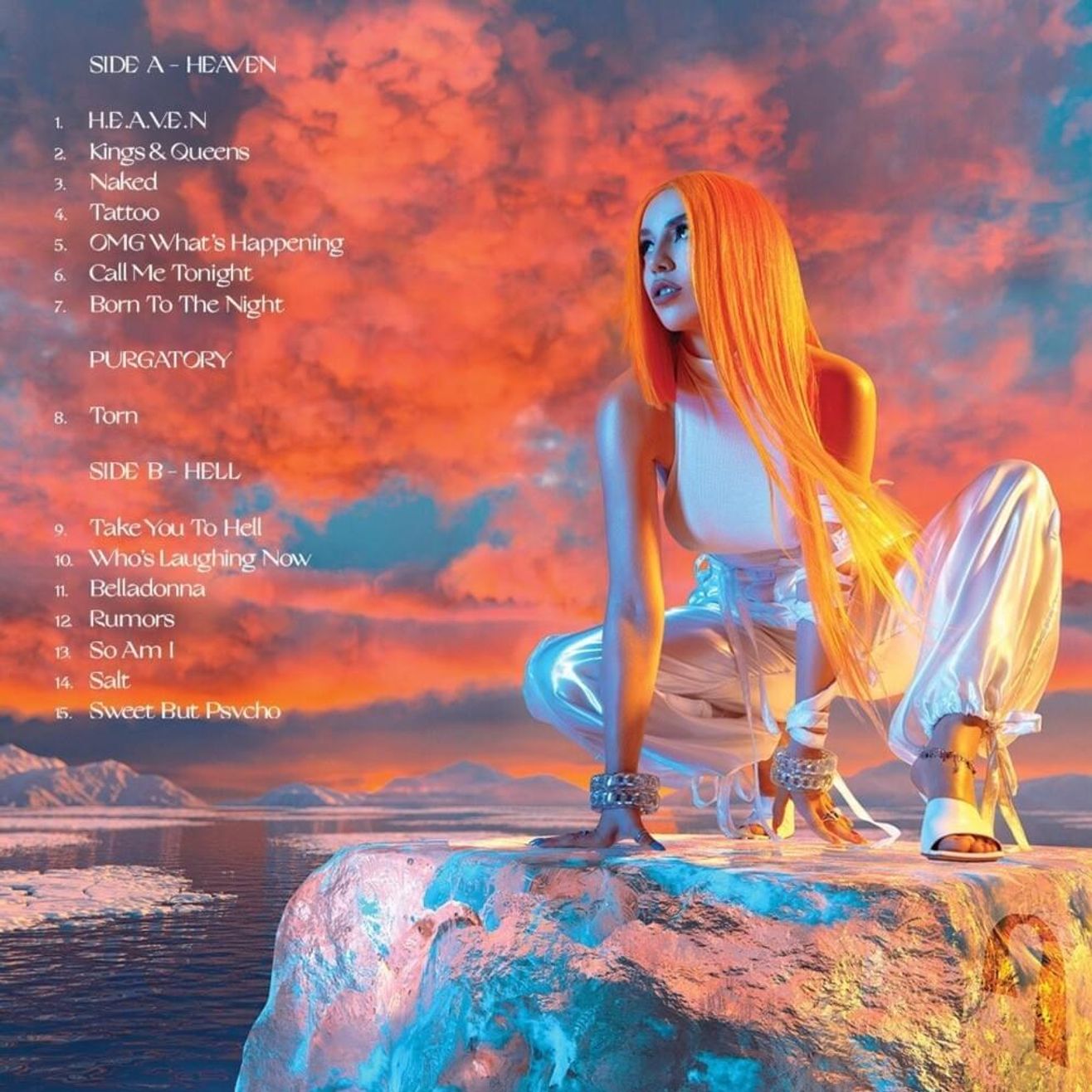The American pop singer’s debut ironically gets trapped in a middling purgatory.
It’s been two full years since Ava Max burst onto the pop music radar with the twisted single “Sweet But Psycho”, which brought her international recognition. Her sharp and spunky vocals sliced through 2018’s male-dominated airwaves and gave hope to desperate pop fanatics that the rise of a new, A-list pop phenom was imminent. Unfortunately, “Heaven & Hell” does little to live up that expectation, and fails to reach the standard that she even set for herself.
Divided into two eight-track chapters, “Heaven” and “Hell” as well as a one-track “Purgatory”, Max’s vision for the record seems clear enough on the surface. The first, “holy” half of the album is dominated by summery electric guitars that have prevailed in the sounds of her contemporaries, with “Tattoo’s” spunky chorus emulating the recent works of Kim Petras. As the songs descend into “Hell,” the record almost poetically begins to fall apart, losing focus and making unusual missteps such as the indefensible reggae-infused “Who’s Laughing Now”.
The themes of the album are too thin to be able to tie the songs together and are rudimentary in their complexity and in their execution. While “Born to the Night” is an album highlight with its disco influence, its lyrical content about making friends with “Demons” makes for poor content in the “Heaven” section of the album and further obfuscates an already fuzzy theme. The album’s heaven/hell premise and the connections between the songs that are highlighted by the tracklisting feel like superficial afterthoughts; it’s hard to imagine that Max did more than record relatively straight forward pop songs and decide how to present them in an LP format until after most of the recording work had been completed. In truth, the album could be put on shuffle and the flow of the album would be largely indistinguishable from its tracklist aside from just a handful of songs like “Heaven,” “Torn,” and the aforementioned “Sweet But Psycho,” which is held like ransom at the record’s end.
Beyond the grievances with the formatting, too many of the album’s tracks are devoid of personality and fall victim to banal lyricism. The album’s third track, “Naked,” is perhaps the worst offender, with Max detailing how the removal of her clothes won’t allow her lover to see her for “real” in a cliché that’s about as deep as a papercut. These flaws only accentuate the album’s superficial veneer.
While “Heaven & Hell” produces mixed results in its conceptual execution, there’s still notable potential for Max’s artistry to grow. Her vocal range shines with its raw power, even though if its unpolished at its extremes, and gives her the freedom to play with melodies and harmonies that others don’t have the luxury of. She remains a formidable vocalist and a decent songwriter, with plenty of time left in her career to fully develop her artistic vision. Unfortunately, she may have missed an opportunity to maintain the public’s attention.





